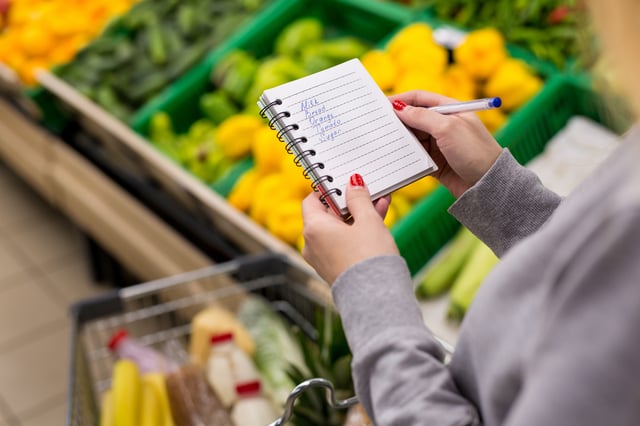Inflation Is Causing Shoppers to Buy Less at Supermarket
With the consumer price index for food at home up 13% year-over-year in September, it’s no surprise that more U.S. adults are concerned about grocery inflation than they are about inflation in general. According to Morning Consult, this rampant increase in prices is causing more consumers to further adjust their shopping habits and buy less at the grocery store.
More consumers than ever are concerned about prices across the supermarket, whereas a year ago they showed more concern for those categories representing the largest dollar share at food retail, such as meat and product, wrote Emily Moquin, food and beverage analyst at Morning Consult. The category seeing the most concern is dairy, which has seen 15.9% price growth since last October.
As a means of saving on groceries, many concerned shoppers are buying less overall. Morning Consult found that 72% of survey respondents are sometimes or often doing just that, up from 64% one year ago. Other common cost-saving tactics include comparing prices and buying generic or store brands.
“This behavior is most common among people from lower-income households, who are more likely to have to stay within a monthly budget than higher earners,” wrote Moquin. “But those in the highest income range, earning at least $100,000 annually, are also 6 percentage points more likely to say they often buy less.”
According to Moquin, these emerging patterns could be a sign that demand is weakening. “Purchasing fewer items overall is an increasingly common tactic concerned consumers are employing to save on groceries amid persistent price growth in the category,” Moquin wrote. “Retailers and food and beverage brands alike should take note, as this could be an indication of slowing demand.”
Not only are consumers buying less, but a growing number of people across generations are facing food insecurity. Morning Consult found that the share of consumers that are often or sometimes worried that their food will run out before they have enough money to buy more was 42% in September, up from 35% last October.
“The unrelenting price increases are forcing shoppers to evaluate their spending, with many buying only those items they deem necessary for a given trip,” Moquin concluded. “On the plus side, reduced demand from consumers limiting their purchases should eventually rein in rising prices."






